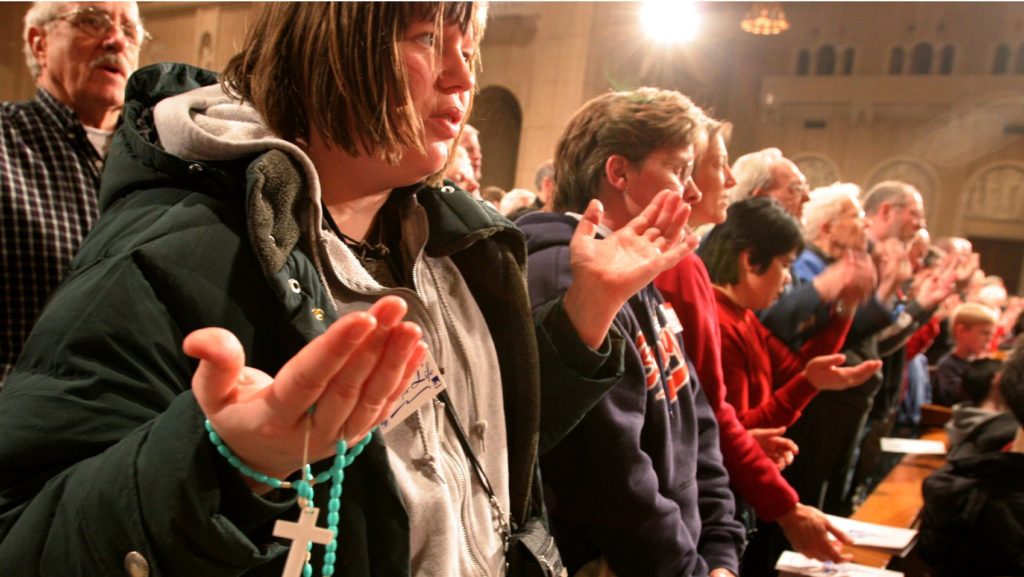Servant of God Romano Guardini (1885-1970), an Italian-born German Catholic priest, author, and academic, is considered one of the most important figures in Catholic intellectual life in the 20th century.
His conventional Catholic upbringing left him unprepared for the virulent atheism he encountered as a student at the University of Munich. The ensuing spiritual crisis was resolved when he one day read and saw with new eyes Matthew 10:39: “Those who find their life will lose it, and those who lose their life for my sake will find it.”
Over the course of his career, Father Guardini taught at various German universities, wrote 75 books, and influenced such noted fellow theologians as Karl Rahner and Hans Urs von Balthasar.
His thought is widely credited as an influence on the changes effected by Vatican II.
“The Lord” (Gateway Editions, $19.35), now a spiritual classic, remains the work by which he is best known. “Really,” one passage runs, “life has something impossible about it! It is forced to desire what it can never have. It is as though from the very start some fundamental mistake had been made as evinced by everything we do.”
To follow Christ, he seemed to say, is to take an existential stance, a stance toward reality.
That stance permeates another of his books, “The Lord’s Prayer” (Sophia Institute Press, $14.95).
The Lord’s Prayer appears in two of the Gospels. In Matthew 6:9-13, it’s part of the Sermon on the Mount. At Luke 11:2-4, the disciples ask Jesus to teach them how to pray and he responds with a minor variation on the same words.
Has everything that can or needs to be said about this endlessly repeated, universally known prayer not already been said?

Not at all, Msgr. Guardini would reply. The Church herself is a living reality, he insisted. Over the course of time, she transforms herself, like any living being. Yet her nature remains the same, and at her heart is Christ.
Each age is called to interpret the words afresh.
The book is short, a mere 100 pages, but the thought it contains made me sit up a whole lot straighter.
For starters, that we pray to “OUR Father” is a protection, says Guardini, against the very human temptation to worship false gods. The words say, in effect, that, “If you want to reach him, you must seek him through him who taught you to pray in these words. You must go with him, and then with him, go to God.”
As well, the “Our” establishes that when we pray, we must implicitly or explicitly include our fellow human beings. We can’t use contemplation and prayer to separate ourselves from man’s sorrows, in other words: to release ourselves from the responsibility of acting, even if the “acting” mostly consists in interior movement.
That God is someone we can even address as a person — “Who art in heaven” — is a huge gift upon which we seldom reflect. The implication is that God is accessible at all times, in all things, in every situation. We can go to him at any hour.
And what do we mean when we pray “Thy will be done”?
Far from calling us to a grim acquiescence, the words issue an invitation to enter into a partnership. “God’s will is that which he demands of us and which binds us in conscience. … But it is more than that. … The will of God is something infinite — a totality. It is something profound, near, living, which concerns us vitally and affects our being to its inmost depths.”
God’s will, says Guardini, is what “by his decree should be accomplished in the world” — and that depends, absolutely, on our cooperation and consent to his grace.
Along with God, in other words, we actually help bring the world, and what happens in it, into being. Our thoughts, intentions, prayers, words, deeds “register” unto infinity.
“If God’s will enters into an hour, that hour is valid for eternity; if it does not, that hour is frittered away to no purpose. Such is the will of God as meant in the petition.”
Each phrase, if not word, of the prayer is afforded the same in-depth analysis.
But the section that struck most forcefully was Guardini’s take on “Deliver us from evil.”
He starts out by observing that when we’re angry at or repulsed by someone, we see them through “a bad filter in which the good is drained off or diluted and the evil is concentrated.” We view friendliness with suspicion, entertain mental reservations about the person’s every word and deed, and attribute motives that don’t exist.
“The world, the world of men, comes into being only as man and things encounter each other; man forms the world in conforming with his own specific being … the good in him becomes the good and luminous in the world; the evil in him becomes the evil of the world.”
“The petition of which we are speaking therefore means Deliver us from the evil in ourselves, so that it may not become the evil of the world.”
The evil in ourselves. Not “out there.” Not in the other. The evil in ourselves.
I now say The Lord’s Prayer in a whole new way.

